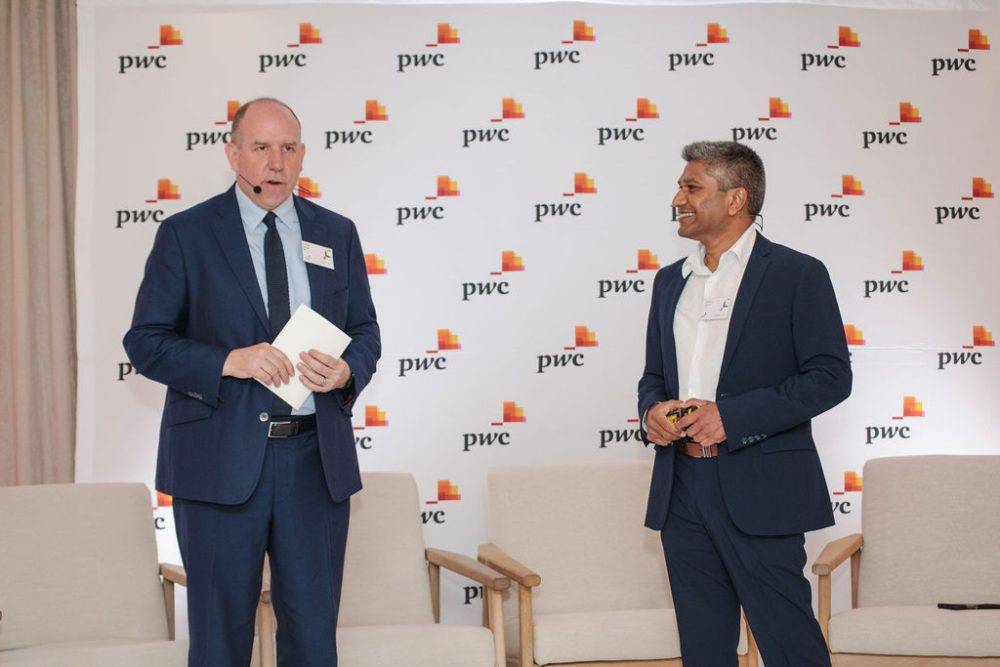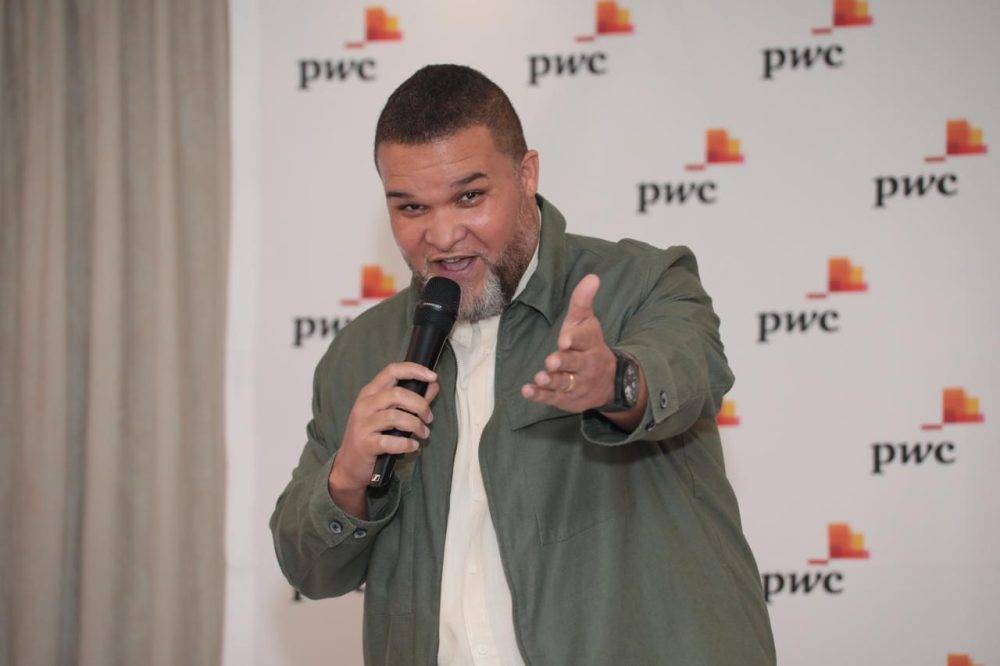Artificial intelligence is reshaping business operations, with consumer demand driving companies to adopt smarter and more efficient systems. Speaking at the event, Ashley Sanichar SaaS Country Leader of Oracle South Africa, impressed on the room the urgency of AI adoption, stating, “Nearly 60% of CEOs are integrating AI into key performance indicators to enable growth, yet almost half of technology executives feel they are struggling to keep pace.”
Sanichar joked that the rapid evolution of AI has already made it difficult for organisations to manage their investments. “AI is taking jobs away from AI,” he chuckled. Importantly, investments in tools such as ChatGPT and OpenAI have already been challenged by disruptive innovations like DeepSeek, which offer lower costs, he continued. “There is a perception that financial resources alone determine AI success, but emerging solutions show that agility and innovation can be just as critical,” he said.
A key challenge in AI adoption is adapting legacy systems that were not designed for AI-driven processes. “AI adoption requires specialised skills, and many organisations lack the expertise to fully integrate these technologies,” Harvey said. To address this, Oracle has partnered with PwC to offer an integrated platform, Fusion, designed to simplify AI adoption while addressing security concerns.
Oracle’s cloud infrastructure was built from scratch to support AI integration across enterprise resource planning, supply chain management, human capital management, and customer experience platforms. “We continuously update our technology based on customer feedback to ensure it remains aligned with evolving business needs,” Sanichar added.
 Ashley Sanichar, SaaS Country Leader of Oracle South Africa and Andrew Harvey, Partner Lead for PwC MEA
Ashley Sanichar, SaaS Country Leader of Oracle South Africa and Andrew Harvey, Partner Lead for PwC MEA
Andrew Harvey, Partner Lead for PwC MEA, reinforced the importance of business transformation in AI adoption. “Successful AI implementation is not just a technology challenge but a fundamental business change process,” he said. PwC collaborates with Oracle to ensure AI adoption aligns with best practices in finance, HR, and other critical business functions.
Harvey explained that PwC does not bid for every project but focuses on those where business transformation is central. “We have a strong track record with no failed AI implementation projects,” he stated. PwC works closely with Oracle’s product development teams to identify gaps in AI solutions and tailor them to business needs. “In complex environments, such as South Africa’s payroll system, our partnership with Oracle allows us to develop customised solutions that address specific regulatory and operational challenges.”
PwC is embedding AI into its delivery centres to improve project efficiency. Harvey pointed to a recent initiative in the Middle East where a PwC team used Oracle’s cloud infrastructure to build an AI-powered business within days, automating market assessments, financial planning, and digital presence creation. “This demonstrates how AI can rapidly accelerate business development when integrated correctly,” he said.
As AI continues to evolve, the Oracle-PwC partnership aims to help organisations navigate AI adoption by integrating secure, scalable, and continuously updated solutions. “AI should not be seen as a standalone technology investment but as part of a broader strategic transformation,” Harvey concluded.
AI in Oracle Fusion Cloud: Driving Automation and Predictive Insights
Naailah Gora, ERP Solution Engineer for Oracle South Africa, led a detailed discussion on the role of artificial intelligence (AI) in Oracle Fusion Cloud, and reflected on its potential to optimise business operations through automation and predictive analytics.
 Naailah Gora, ERP Solution Engineer for Oracle South Africa
Naailah Gora, ERP Solution Engineer for Oracle South Africa
“Oracle’s AI is not an add-on; it is embedded directly into our Fusion applications,” Gora said. “This allows AI to learn from a customer’s data while ensuring privacy and security remain intact.” She stressed that Oracle does not charge extra for AI capabilities, focusing instead on delivering context-specific applications across various business functions.
Gora outlined five key strengths of Oracle’s AI framework. “Firstly, our AI is grounded in Fusion data, which means it does not benchmark against other customers. Second, it is built on Oracle Cloud Infrastructure (OCI), leveraging our deep database expertise. Customers using Fusion applications gain access to large language models (LLMs) without requiring additional subscriptions.”
Privacy and security are also central to Oracle’s approach. “Each customer’s data remains separate, ensuring compliance with security and regulatory requirements,” she added. The fourth strength is extensibility. “We provide an open framework that allows businesses to integrate AI models with third-party applications.” Lastly, Oracle’s AI aims to enhance efficiency and productivity by automating processes, reducing errors, and improving decision-making.
She distinguished between classic AI, which includes smart recommendations, intelligent document processing, and AI-driven digital assistants, and generative AI, which enables data visualisation, text analysis, and automated report generation. “We partner with Cohere for LLMs, which are deployed on OCI to guarantee data privacy,” she said.
Oracle is also developing AI-powered agents to automate tasks such as supplier support in procurement. “Our vision is touchless finance operations,” Gora said. “We are automating procure-to-pay, reconciliation, and data mastering, integrating predictive analytics and generative AI into enterprise performance management.”
She concluded by stressing the importance of AI in connecting finance with other business functions. “AI is not just about technology—it’s about transforming business processes,” she said.
PwC Invests in Skills to Meet Client Demand
Following Naailah Gora’s insights on Oracle Fusion’s AI capabilities, Vinoliah Martin, Chief Technology Officer for PwC South Africa Technology and Innovation Centre, provided an update on PwC’s social impact initiatives and its broader strategy for addressing growing client demands.
 Vinoliah Martin, Chief Technology Officer for PwC South Africa Technology and Innovation Centre (SATIC)
Vinoliah Martin, Chief Technology Officer for PwC South Africa Technology and Innovation Centre (SATIC)
“At PwC, we are focused on building capacity within our delivery centre to ensure we can effectively service clients both locally and globally,” Martin said. She highlighted that the organisation’s approach combines skills development with strategic partnerships, enabling PwC to stay ahead of evolving business needs.
Discussing PwC’s technological expertise, Martin noted, “Oracle’s Fusion Cloud has allowed us to expand our capabilities in enterprise resource planning (ERP) as demand continues to grow.” Beyond Oracle, PwC has strong expertise in Salesforce, Mulesoft, Workday, Microsoft, Legal Tech, and Guidewire. “We also provide transformation enablement services,” she added, “which range from digital transformation expertise—such as project managers, Scrum Masters, and business analysts—to sustainability reporting and managed services.”
One of the firm’s notable successes, Martin said, was a finance transformation project for a UK-based insurance client. “Working alongside SATIC and other delivery centres, we helped automate the client’s financial processes, controls, and reporting across the entire finance function using Oracle Cloud ERP and EPM,” she said. The project, she explained, streamlined operations and improved efficiency for the client.
Martin attributed PwC’s success to three key pillars. “First, we prioritise strategic and trusted relationships. The ability to collaborate closely with our clients is crucial in delivering impactful solutions,” she said. Second, she reflected on PwC’s focus on talent development. “We are committed to hiring and upskilling talent to ensure sustained value for our clients.” Lastly, Martin emphasised the company’s dedication to quality. “For us, it’s not just about delivering a project—it’s about consistently delivering value and excellence.”
CEOs Face Complex Challenges Amidst AI Revolution
Business leaders face a complex interplay of challenges, including inflation, regulation, and social inequality, even as they seek growth and explore the potential of artificial intelligence (AI). This emerged from the hightlight of the event; a panel discussion featuring Johan Pretorius of MTN, Ashley Sanichar of Oracle, and Kesh Naidu, Partner: Clients and Markets Leader for PwC SA. The discussion, moderated by Michael Avery, centred on the findings of PwC’s latest global CEO survey.
 Johan Pretorius of MTN, Ashley Sanichar of Oracle, Kesh Naidu, Partner: Clients and Markets Leader for PwC SA and Michael Avery
Johan Pretorius of MTN, Ashley Sanichar of Oracle, Kesh Naidu, Partner: Clients and Markets Leader for PwC SA and Michael Avery
Avery set the stage by emphasising the centrality of technology strategy to overall business strategy. He then directed the discussion to Naidu, asking him to elaborate on the survey’s key findings regarding CEOs’ priorities in Africa and the role of AI.
Naidu turned the focus towards the increased optimism among African CEOs regarding growth, despite prevailing challenges. “The optimism across Africa CEOs is actually higher than it was in previous years in terms of growth,” he stated. However, he noted that CEOs grapple with distinct threats, including inflation, rising costs, diverse regulations across the continent, political risks, and social inequalities. “The cost to actually do business [is] increasing,” he explained.
He further emphasised a shift in mindset from resilience to reinvention, with CEOs exploring new markets and products to drive growth. “Growth actually cannot be now founded just on your core offerings,” he asserted. Naidu also pointed to the growing importance of AI, integrated into business strategies, particularly in workforce management, business processes, and core technology. He observed that CEOs are moving beyond the hype surrounding AI and focusing on practical applications. Finally, Naidu noted that while sustainability remains a key theme, it is often discussed in the context of compliance and cost reduction, rather than long-term risk mitigation. “Four out of the top 10 risks are related to weather, adverse weather, biodiversity, changes in the earth’s systems itself and so forth,” he cautioned, demonstrating the long-term risks associated with neglecting sustainability.
Avery then brought Pretorius into the conversation, linking the survey findings to real-world events like the recent disasters in Florida and Los Angeles, which underscore the immediacy of climate-related risks. He asked Sanichar about organisations’ readiness for generative AI and the challenges they face in adoption.
Sanichar acknowledged that while many companies may not yet be fully prepared, the decision to embrace transformation is crucial. “Companies will be ready. I don’t think they’ve made the earnest effort to become ready,” he said. He stressed the importance of planning, understanding business requirements and partnering with experts. “You’ve got to keep swimming,” he advised, warning against complacency in the face of rapid technological evolution. “If we stop and wait and look around, I think you’re going to fall behind.” Sanichar offered a note of encouragement, however, stating, “It’s evolving so fast that I think that organisations will be able to take the time to plan.”
The panel discussion specifically considered the complex landscape facing CEOs today. While growth remains a central objective, leaders must navigate a range of challenges, from economic pressures to evolving social and environmental risks. The strategic integration of AI, coupled with a proactive approach to reinvention, is seen as crucial for success in this dynamic environment.
The Unlock Innovation with PwC and Oracle Fusion Cloud event ended on a high when renowned comedian Jason Goliath lit up the venue with a hilarious yet inspiring set. As the crowd rolled with laughter, they were also left with a wonderful sense of purpose and self worth. Goliath reminded everyone of three things they need to keep in mind at all times: “Gratitude, acceptance and perspective.”
 Comedian, Jason Goliath
Comedian, Jason Goliath
With Goliath’s inspiring words still resonating with everyone in the room, the event left all attendees with a reinforced understanding of the significance of AI, cloud technology and digital transformation in driving business growth. Most importantly, they left with the knowledge that they could count on Oracle’s cutting-edge solutions and PwC’s expertise to guide their organisations through this critical technological evolution.
Note: The event was led by Tshifhiwa Makhari of PwC and Mark Timms from Oracle, with financial journalist and broadcaster Michael Avery serving as the Master of Ceremonies and panel discussion moderator.